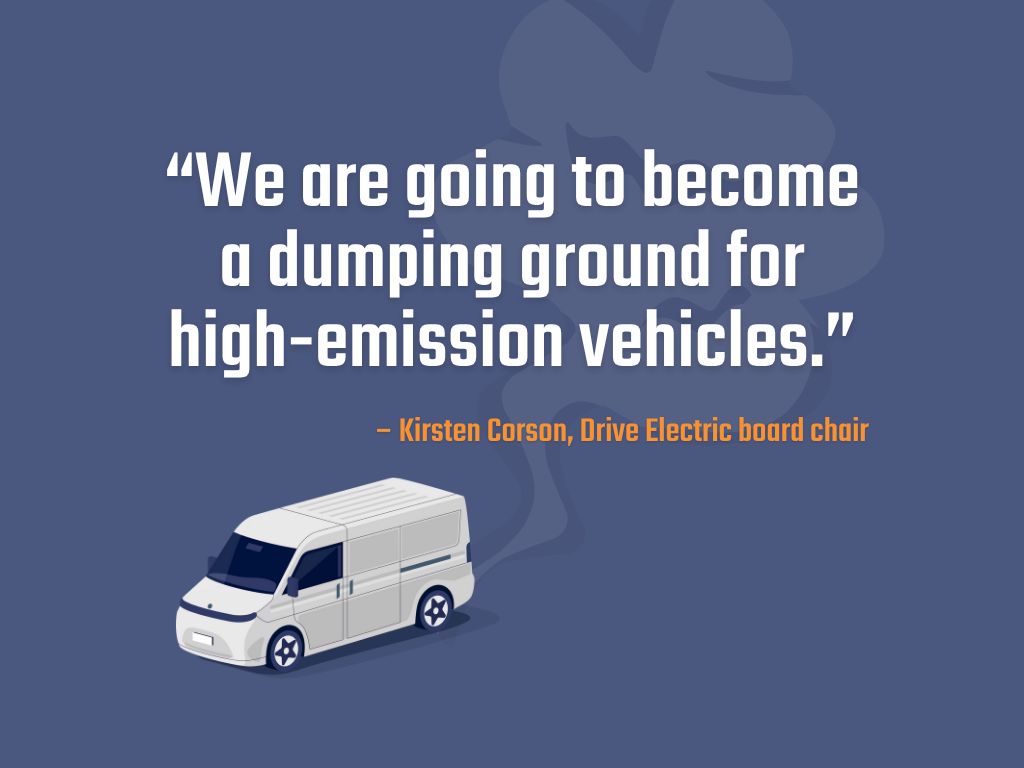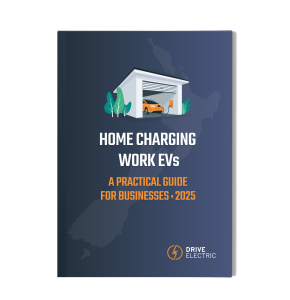Transport Minister Chris Bishop has announced significant amendments to the Clean Car Standard (CCS). These changes mark a major shift in Aotearoa New Zealand’s effort to cut emissions from transport.
About the Standard
The Clean Car Standard was introduced in 2023 to lower costs for households by making it easier for people in New Zealand to buy fuel-efficient, low-emissions vehicles. It works by applying charges to importers who bring in higher-emission models, and awards credits for lower-emission vehicles. Charges only apply when credits cannot be used to offset them.
“It sets annual CO₂ targets for vehicle importers, who must balance higher-emitting models with enough low-emission vehicles to meet their overall target. If they fall short, they face charges; if they exceed it, they earn credits,” Minister Bishop says.
What The Government Will Change
The Government has announced it will:
Temporarily reduce charges by nearly 80 per cent. Making it far cheaper for vehicle importers to meet the Standard when credits are not available.
| Vehicle Imports | 2025 Top Rate (per gram of CO₂) | 2026/27 Top Rate (per gram of CO₂) |
|---|---|---|
| New | $67.50 | $15.00 |
| Used | $33.75 | $7.50 |
Protect existing credits, ensuring none expire before 31 December 2028.
Launch a full review of the Standard, with recommendations due to Cabinet by June 2026.
The Government’s Rationale
Minister Bishop says the changes are intended to reduce pressure on importers and protect buyers from higher vehicle prices:
“At a time when Kiwis are still feeling the pinch, the last thing they need is the cost of cars going up by hundreds, or even thousands, of dollars – but unless the Government acts urgently to fix the Clean Car Standard, that’s exactly what could happen.”
Minister Bishop argues market conditions have shifted, with constrained supply from Japan and a drop in EV demand.
The Impact of Weakening the Standard
Reducing the strength of the CCS puts Aotearoa at risk of:
- Slowing the transition to cleaner vehicles
- Increasing carbon emissions from the transport sector
- Reducing consumer access to affordable low-emission options
- Undermining business and investor confidence in our EV market
Consumers can expect fuel-saving benefits to evaporate by up to $155 million. Importers may save $264 million in net charges, though Minister Bishop acknowledges “Exactly what price consumers pay at the car yard varies.”
Drive Electric’s Response
At the Climate Change & Business Conference 2023, then-opposition spokesperson Simon Watts confirmed National would honour the Paris Agreement, if it were to form a Government. A year later, as Minister for climate change, he stated that the Government didn’t inherit a plan to reach the 2030 targets. While technically correct–because the Emissions Reduction Plan was still under development–the Government has since taken decisions that make achieving our domestic target much more challenging.
The Government has dismantled the Government Investment in Decarbonising Industry (GIDI) and removed the Clean Car Discount (CCD). In doing so, it has weakened the incentives that helped businesses and households cut emissions, and it has slowed the shift to electric vehicles.
Road User Charges (RUCs) and ACC fees have been levied on EV buyers, and in July 2024 the New Zealand Clean Car Importer Standard was weakened to align with Australia’s Emissions Standards.
These decisions have also reduced consumer demand for EVs. Emissions from imported vehicles are rising again.
There is also a real financial risk: Treasury estimates Aotearoa could face a Paris Agreement liability of $3.3 billion to $23.7 billion in 2030 if we fail to meet our targets.
Minister Watts has previously suggested that paying this sort of money wasn’t politically palatable given New Zealanders would prefer to see that money spent on health and education. But not meeting them puts our trade relationships at risk. Both EU and UK free trade agreements include provisions that require New Zealand to support the Paris Agreement. We cannot support the Agreement if we do not intend to meet its requirements.
Drive Electric has previously commissioned research showing the long-term cost of removing the entire Clean Car Programme (Clean Car Discount and Clean Car Standard):
“A new Internal Combustion Engine (ICE) vehicle bought today will stay on roads for 20 years consuming costly oil and releasing emissions. Cumulatively, this research is telling us this will cost the economy at least $900m and probably more, and make it much harder to hit our 2030 emissions targets.”
Households, businesses and the wider economy all benefit from strong policy that accelerates decarbonisation — not from weakening it.
For these reasons, the Government’s changes to the CCS are a big step backwards at a time when we urgently need to speed up, not slow down.
Drive Electric’s Postion
Our Chair, Kirsten Corson, has spoken widely in the media about the potential impact of these changes:
“The faster we get people into EVs the faster we end dependence on imported petrol and diesel, saving the economy and households billions of dollars every year. An electric transport future is a cheaper future for Kiwis. Charging a BEV at home is the cheapest way to drive a car 100km in Aotearoa”
She also warned:
“We are going to become a dumping ground for high-emission vehicles.”
Drive Electric will continue to push for a strong, evidence-based emissions policy. Our work will include:
- Engaging directly with Ministers and officials
- Working with organisations across the climate and transport sectors
- Maintaining a strong presence in the media
- Supporting members with trusted information and opportunities to be involved.
We will keep our members updated on our advocacy efforts, partnerships and next steps.
Sources and Further Reading
It’s About to Get Cheaper to Import Dirty Cars – But the Climate Impact is ‘Negligible’ November 2025, Stuff.
NZ will be “Dumping Ground” for High-Emission Cars, EV Advocate Warns November 2025, RNZ.
Is the EV Bubble about to Burst?
November 2025, NewstalkZB.
Policies Creating “Penalty for Plugs”
November 2025, Autofile.
The Panel with Sarah Perriam-Lampp, Peter Fa’afiu and Wallace Chapman
(From 2:56 mins), November 2025, The Panel, RNZ.
Behind the Govt’s Urgent Move to Make it Cheaper to Import Dirty Cars
November 2025, Newsroom.
Rewiring Aotearoa’s statement on the loosening of the Clean Car Standard November 2025, Rewiring Aotearoa.
The Likely cost-benefit of removing the CCD December 2023, Concept Consulting and Drive Electric.
Ngā Kōrero Āhuarangi Me Te Ōhanga. Climate Economic and Fiscal Assessment 2023 The Treasury and MOE.
Clean Card Standard Monthly Report October 2025, NZTA.
Govt Keeping Options Open on International Climate Targets August 2024, Carbon News.






